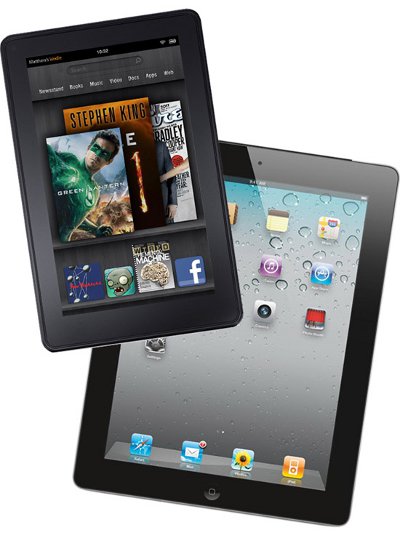 The classic hardcover textbook is slowly exiting the classroom along with No.2 pencils, protractors and compasses. Mobile devices are fast becoming the new “norm” as colleges and universities throw away the old and welcome the new.
The classic hardcover textbook is slowly exiting the classroom along with No.2 pencils, protractors and compasses. Mobile devices are fast becoming the new “norm” as colleges and universities throw away the old and welcome the new.
The newest trend to influence the education sector is the use of tablets in the classroom. This technological advance is catching on like wildfire and fast becoming an educational “norm.” In fact, Apple announced it sold a record 500,000 MacBooks to schools in its last quarter as well as 1 million iPads to colleges and high schools, doubling its sales from one year prior.
According to Apple CEO Tim Cook, “Education tends to be a conservative institution, but we’re not seeing that at all on the iPad. The adoption of the iPad in education is something I’ve never seen in any technology.”
The Students Agree
What do students think of tablets replacing the traditional textbook? According to the data from the Pearson Foundation’s Survey on Students and Tablets, 63 percent of college students agree that tablets will replace textbooks in the next five years. Tablet ownership has also tripled from last year as more college students are embracing technological advances to enhance their learning capabilities.
The data also revealed that 58 percent of college students prefer digital reading to print textbooks for classroom usage. About 90 percent of college students who own a tablet believe it is a valuable tool to use for educational purposes. According to the data, students are interested in digital textbooks because they have instant access to online communities to share material, ask questions and interact with the instructors while viewing their comments.
What Are The Educational Uses of Tablets?
Beyond digital textbook use, tablets offer students a broader spectrum of learning capabilities. Educators use tablets creatively to boost student interaction, motivation and learning and take advantage of numerous applications to organize and enhance the student’s learning experience.
According to Kathy Cook, director of educational technology for the University of Phoenix College of Education, “IPads can be used effectively in the classroom as a textbook and document viewer, as well as a productivity, note-taking and administrative tool. They help tear down classroom walls and allow students to broaden their learning opportunities.”
Even the Government is Getting Involved
The Federal Government has taken a stand to discuss the benefit of replacing traditional textbooks with tablets. Julius Genachowski, Federal Communications Commission (FCC) Chairman, and Arne Duncan, Education Secretary, hosted a talk on the subject to promote technology use in schools. Education and technology experts have teamed up to form the Leading Education by Advancing Digital (LEAD) Commission. The LEAD commission’s first order of business is to replace textbooks with tablets in K-12 grades over the next five years.
Potential Challenges
Though tablets have fostered a higher level of creativity and interaction among students and professors, many schools are faced with a financial challenge and cannot participate in implementing the technology. Financial struggles have made it difficult for educational institutions to adopt a college-wide tablet policy. Though digital media is cost-effective, the price of the tablet exceeds the cost to purchase or rent traditional textbooks. As a result, some colleges are fostering the BYOD (Bring Your Own Device) model where students are encouraged to purchase digital copies of their textbooks.
The immensity of a site-wide tablet adoption is more of an undertaking than many institutions are ready to tackle. Thousands of textbooks would be involved in the transition along with the need for all instructors to agree to the new digital policies and adopt them into their classroom instruction.
Despite the challenges, educational institutions with a trend towards online colleges are slowly transitioning to a tablet-based classroom and experts predict a major shift in the next five years. According to technology proponents, tablets will become the new “norm” and traditional textbooks will become more antiquated as time passes and students demand a more interactive educational experience.
Rebecca Burton has recently started teaching in a new school. She is extremely fond of gadgets. In her spare time, she likes to write articles and essays for essaypro.com.










